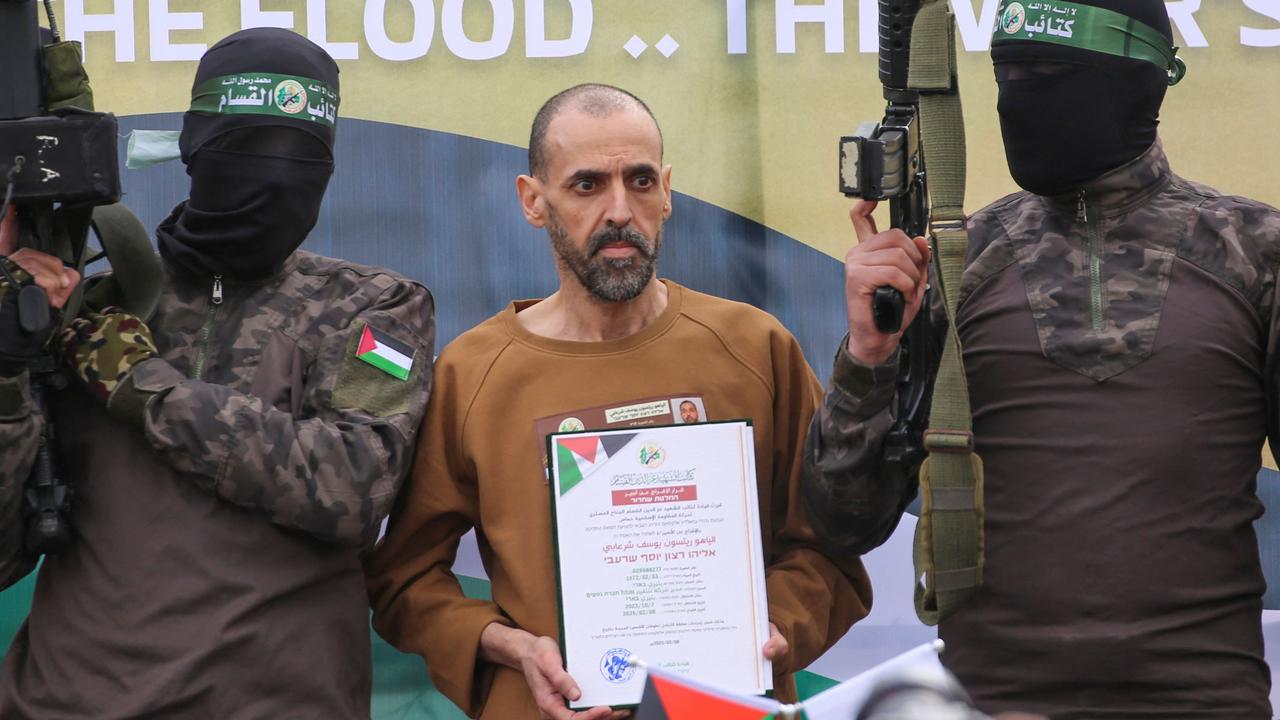IS: How terror group is adapting to loss of Iraq, Syrian territories
IS MIGHT be on the brink of losing Mosul but it is far from dead and buried. And the west has every reason to be alarmed.
ISLAMIC State has been dealt a massive blow after losing swathes of territory in Iraq and Syria, but the group remains as dangerous as ever as it evolves and makes inroads elsewhere.
The embattled group is not only establishing strongholds in other countries but remains a radicalising presence online as militants continue to encourage homegrown attacks, a new report has found.
International policy organisation the Counter Extremism Project warns Islamic State is continuing to evolve beyond Iraq and Syria, three years after declaring a caliphate.
In its report, the CEP warns that policymakers and governments must address the changing threat the group now poses to the world.
IS affiliates and supporters have carried out recent attacks in countries including Pakistan, Afghanistan, the Sinai Peninsula, Yemen, Somalia, India, Bangladesh and the Philippines.
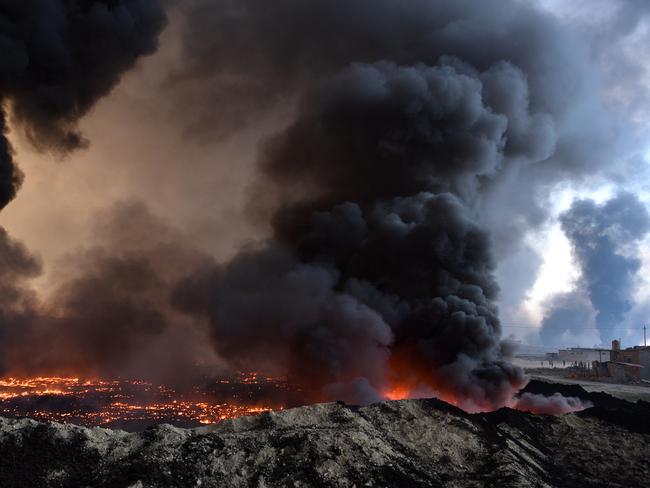
IS has lost around $500 million in income between 2014 and 2015 due to loss of territory and coalition air strikes.
And while acknowledging the terror group has lost significant territory, the CEP said IS remained a huge concern, especially in the online world.
The CEP said Islamic State continues to encourage radicals to strike at home using cars as weapons.
IS began encouraging such attacks across its social media platforms as early as 2014.
“Ultimately, ISIS seeks to unite the world under a single caliphate and has established satellite operations in nine countries,” the CEP said.
It also warned the terror group would continue to cause damage wherever it could.
“While ISIS’s dreams of a global caliphate are unlikely to ever be realised, the group will continue to cause significant damage wherever it is able to gain a foothold,’ the CEP said.
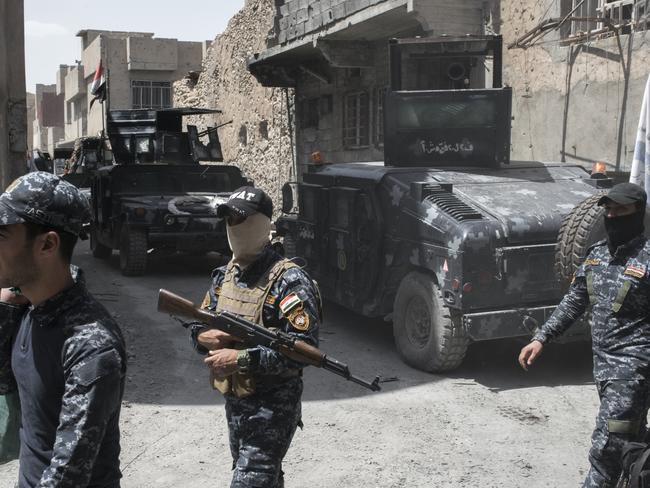
‘ONE EYE OPEN’
While Coalition forces have regained significant territory, including Fallujah in Iraq and Palmyra in Syria, the battle to defeat the terror group is far from over.
Anti-terror expert Warren Reed warned last year the “west will need to sleep with one eye open” as the group seeks revenge over the loss of such territory.
Mr Reed, a senior security analyst who was trained by British spy agency MI6 and served 10 years with the Australian Secret Intelligence Service, warned defeating IS was not going to be a quick or easy task.
He also warned IS will pop up like a gopher from the ground and morphing into other areas, particularly overseas with homegrown attacks.
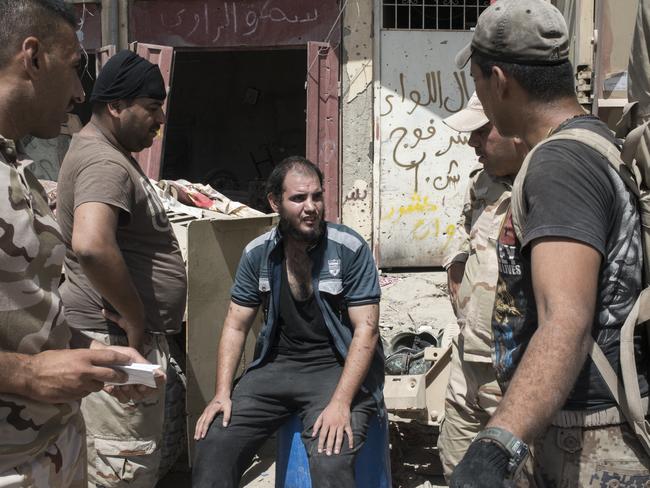
BATTLE FOR MOSUL
The city of Mosul was once an IS stronghold.
Islamic State once controlled 40 per cent of territory in Iraq when it established its caliphate in 2014, but now controls just 2sq km in Mosul.
The Popular Mobilisation Front (PMF) forces, composed of majority Shi’ite militia, part of the Iraqi forces, have pushed IS militants from the northwestern Iraq border strip back into Syria.
But Iraqi forces have been battling it out with militants who are determined to maintain a grip on the Old City.
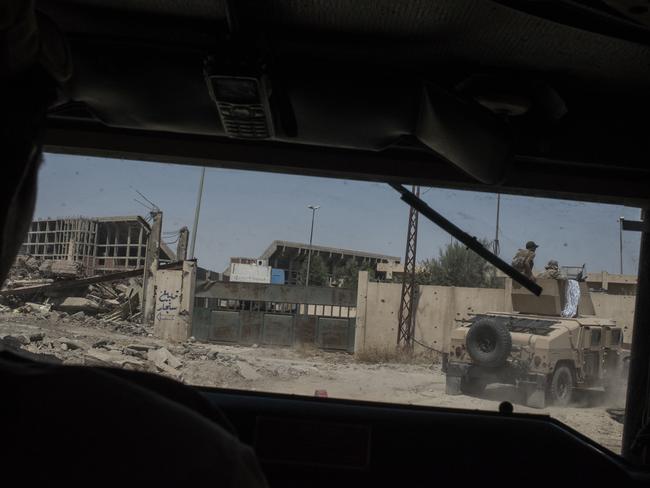
The IS attacks forced Iraqi forces and the US-led coalition to pull some assets away from the Old City to again clear the Yarmouk and Tanak neighbourhoods, which were declared liberated of IS in May, the Associated Press reported.
IS still hold the small area of territory in Mosul’s ancient Old City district.
In 2014, the Islamic State group’s top leader Abu Bakr al-Baghdadi declared a self-styled “caliphate” in the city which encompassed territories held by IS in Syria and Iraq.
In recent weeks, IS has managed to launch a number of counter-attacks and insurgent assaults inside some Mosul neighbourhoods that were retaken from the group earlier this month.
The PMF now hold the border, crucial to the fall of Islamic State in Mosul, blocking the Islamic State supply route for militants from Syria to Mosul.
— with wires




